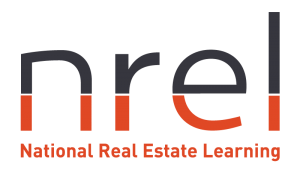Essential Tools and Tech Every Modern Real Estate Agent Should Use
The Australian real estate industry looks very different today than it did even a decade ago. Technology has reshaped how agents work, how clients search, and how quickly transactions move.
For professionals, this shift comes with both opportunity and pressure. The right tools can save hours of admin, strengthen client relationships, and create a real edge in a competitive market. Skip them, and you risk being left behind. That applies equally to newcomers just starting out as well as experienced agents who’ve been in the game for years.
This blog highlights the essential tools every modern real estate agent should be using to stay sharp, responsive, and client-focused.
Tools and Tech Every Modern Real Estate Agent Should Use
Property Listing and Marketing Tools
Listings are the backbone of real estate, but they’re not what they used to be. Buyers now expect professional-quality photos, engaging descriptions, and digital accessibility. Platforms like realestate.com.au and Domain are the go-to for listing sites in Australia, and agents often rely on software that can manage listings across multiple sites to save time.
Marketing doesn’t stop at listings. Social media ads, targeted campaigns, and even regular email newsletters build visibility. Tools like Meta Business Suite or Mailchimp simplify that side of the job.
One thing agents consistently overlook is presentation. High-quality photos, 3D walkthroughs, and even drone footage can dramatically improve enquiry rates. It’s an investment, but often one that pays off quickly.
Customer Relationship Management (CRM) Systems
Staying organised with clients is one of the toughest parts of the job. That’s where a CRM system comes in.
A good CRM keeps client details in one place, tracks leads, automates reminders, and makes sure no follow-up slips through. That level of organisation builds trust, and clients notice when you remember details and check in on time.
In Australia, popular CRMs include VaultRE and Rex, though larger global platforms like Salesforce and HubSpot are also adaptable. The key is finding one that fits your workflow and integrates with your other marketing tools.
Communication Tools
Real estate relies on clear and consistent communication. Video conferencing tools like Zoom or Microsoft Teams allow agents to connect with clients anywhere, while instant messaging apps (WhatsApp, Slack) keep conversations quick and informal.
Even email can be streamlined. Platforms like Outlook or Gmail, with built-in sorting and scheduling tools, prevent inbox overload. For many agents, just tightening up communication habits is enough to save hours each week.
Transaction and Document Management
Paperwork is part of the territory, but cloud-based systems make it manageable. Platforms designed for contracts and compliance allow agents to securely share documents without relying on endless printing and scanning.
Adding e-signature tools like DocuSign or Adobe Sign further speeds up the process. It’s not unusual for contracts to be signed within minutes instead of days, a change that benefits both clients and agents.
Mobile Apps and On-the-Go Productivity
Real estate is rarely a desk job. Between open homes, inspections and client meetings, agents spend a lot of time on the road. That’s why mobile apps are indispensable, keeping agents productive between appointments.
From task managers like Trello and Asana to inspection-specific apps that generate reports on the spot, these tools reduce the time spent on admin at the end of the day. Even simple calendar syncing helps prevent double bookings, which can be a surprisingly common headache.
Data Analytics and Market Insights
Modern agents are expected to advise, not just sell. That’s where analytics tools make a real difference.
Market insight platforms help track property trends, pricing shifts, and buyer demand. These insights strengthen conversations with clients, especially when it comes to pricing strategy. If integrated with a CRM, they also create a fuller picture of how buyers are behaving and where opportunities lie.
And Finally: Ongoing Professional Development
Ongoing professional development is essential for agents who want to remain competitive and stay current with the latest tools. As technology changes how the industry works, so do standard practices. That could mean refreshing your knowledge of compliance requirements, sharpening negotiation skills, or gaining certifications that set you apart.
At NREL, our training programs are designed to support both new and experienced professionals. From the NSW Registration Certificate Course to a comprehensive Certificate IV in Real Estate Practice, our courses are nationally recognised and equip you with real-world practical skills.
By investing in professional development, agents not only stay compliant but also demonstrate credibility to clients. And in an industry built on trust, that matters as much as any app or platform.
Conclusion
Real estate has always been about relationships, but the way agents manage those relationships has changed. From CRMs and listing platforms to mobile productivity apps and analytics tools, technology is now central to success.
Adopting these new systems doesn’t mean replacing traditional skills. Instead, it frees up time so agents can focus on what really matters: building trust, guiding clients, and closing deals.
Want to start your property career with a recognised qualification? Take the first step towards building a successful career with NREL.
Call +07 3053 4011 to learn more about how to enrol into our real estate registration course.



